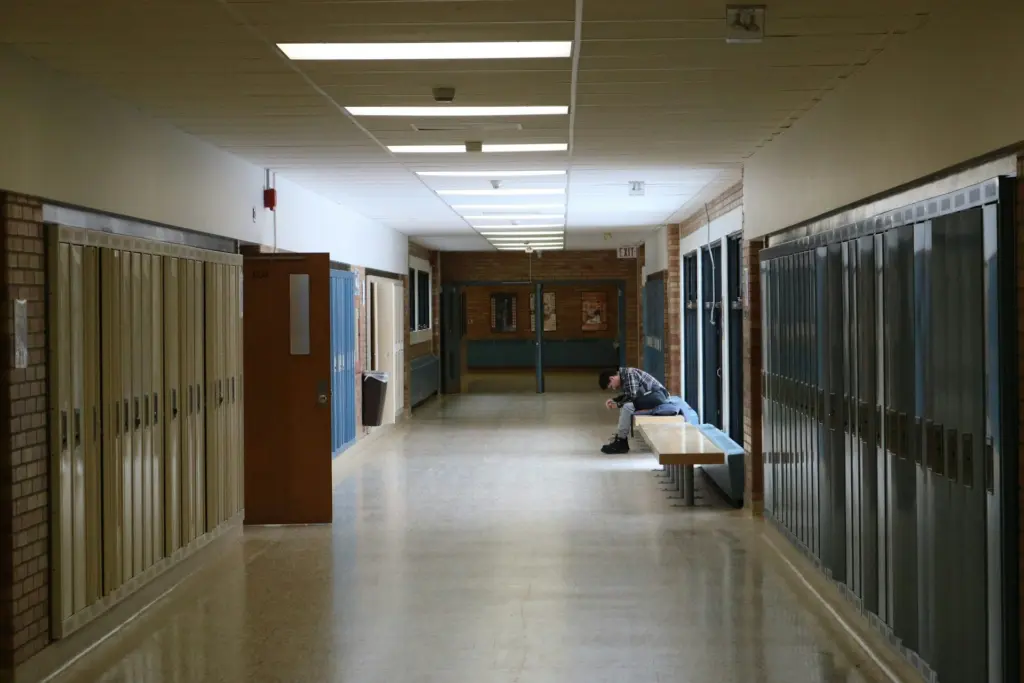WENATCHEE, WA – Teachers and support staff in Washington’s 295 public school districts are operating under new rules about how to handle disruptive and out-of-control students, but some teachers say the new policies aren’t enough to do their jobs.
The Washington Office of Superintendent of Public Instruction (OSPI) worked on the changes for the last year-and-a-half with the new rules officially implemented over the summer — though they were put in place under emergency rules during the 2024-2025 school year.
Post COVID, student discipline became an increasing distraction for teachers, with many students acting out verbally and physically.
When in-person learning resumed, Washington’s Superintendent of Public Instruction, Chris Reykdal, said educators were dealing with increased anxiety, shorter attention spans and other behavioral issues among students in all grade levels.
Reduced staffing exacerbated the problems.
The newly implemented rules are intended to provide more clarity for school staff and according to OSPI were made in response to feedback from educators.
Teachers now have clearer guidelines for removing a student who is repeatedly disruptive or a threat to themselves or others.
However, two teachers from the Eastmont School District in East Wenatchee charged with dealing with students with serious behavior challenges told The Center Square that without support from administrators in their building, OSPI rule changes are irrelevant.
“I feel that we do not have the support from admin that we deserve,” said an educator at Grant Elementary School in East Wenatchee who did not want her name published for fear of retaliation from supervisors. “Last year we had a first-grade classroom, and one student consistently would throw chairs, throw books, and try to stab people with pencils. They would not remove the student. Instead, they would evacuate the rest of the students, and they would either have to go to another classroom or they would get an extra recess and this wouldn’t just be like once in a blue moon, this is daily and sometimes more than one time in a day.”
The educator said despite training and systems in place to deal with out-of-control students, the building lacks staff, and administration doesn’t offer support to assist staff members who are routinely threatened.
“I could not tell you how many times that I pushed a button, or my comrades would push a button [for help] and nobody would come. So, we have these things installed for our help to support us and then there’s no support. Because the staff is stretched so far, and they’re doing other jobs that are not their job titles because there’s no funding for the other jobs,” she said.
Another educator at the same school who recently opted to pull back to only substitute teaching told The Center Square she loves working with the children with behavior challenges and other obstacles to learning but feels administrators aren’t supporting them.
The educator, who also did not want her name published for fear of retaliation, shared her struggles with one student in particular.
“They had me with him one on one. The problem with this child is that he was very unpredictable and he was very physical,” she said. “Like he would hit kids, and he was very inappropriate with other students. He was physical with other students, with biting, or hitting, and I did not understand why they were allowing this child to continue in a classroom if he is unsafe with other children.”
The teacher shared about being punched in the face by a young student who was going after a classmate.
“I put my body in between that student and him, and he looked up at me and punched me in the face,” she said. “Imagine a coworker, or a parent had come in and, been abusive like this, it wouldn’t stand for one second, but because it’s a student, you have to sit there, and freaking take it.” Why is this happening in our school? Why are we allowing this to happen?”
The teacher shared that colleagues in her school and neighboring schools have shared that they are near the breaking point and considering leaving the profession.
The Center Square reached out to Eastmont School District Superintendent Spencer Taylor for comment on the staff members’ concerns and received a response via email.
“At Eastmont School District, the safety and well-being of all students and staff members is our highest priority and we take any concerns about workplace safety very seriously,” Taylor wrote.
“We recognize that our region does not currently have a dedicated behavior program, like many regions do, to support students who require a more controlled environment. In response, we have worked to maximize the resources and expertise available within our district to provide students with the highest level of care and support possible,” wrote Taylor. “While we cannot comment on specific students or incidents to maintain their privacy and dignity, through our teamwork with the student, their parents, and our staff, we have seen significant improvements and positive outcomes across our district.”
One of the Grant Elementary teachers who spoke with The Center Square pushed back on Taylor’s assertion that teachers concerns were adequately considered.
“Our concerns were repeatedly pushed aside and ignored. I went through every resource available—emails, meetings, and even requesting to meet with the superintendent—seeking solutions. In one of our meetings, staff members were in tears over what they were witnessing and the hardship of watching a peer attacked by a student with no meaningful action taken. Despite this, no results, advice, or support were offered to help us address the chaos we were facing,” said the teacher. “What makes me especially sad is that many staff remain silent out of fear of retaliation—retaliation that is very real in this building.”
The Office of Superintendent of Public Instruction said the schools are following state law.
“Staff and student safety are paramount to ensuring an effective education for all. When a student is in crisis, schools use de-escalation strategies and, if necessary, temporarily clear a classroom or remove the student to maintain safety,” wrote OSPI’s Katy Payne. “The law requires schools to prioritize de-escalation, safety, and supportive interventions before resorting to exclusionary discipline.”
Asked specifically about clearing out entire classrooms when one child is out of control, Payne stated:
“When a student becomes physically aggressive or unsafe, staff may implement a room-clear procedure (temporarily moving other students to another space) if it is the safest way to protect all students,” wrote Payne. “Collaboration with families is a critical part of these efforts. Families bring insight into a child’s experiences, strengths, and needs, and when schools and families develop strategies together, students benefit from consistent approaches across home and school. This partnership not only builds trust but also helps students feel supported by the adults in their lives, which can significantly improve behavior and reduce repeated incidents.”





